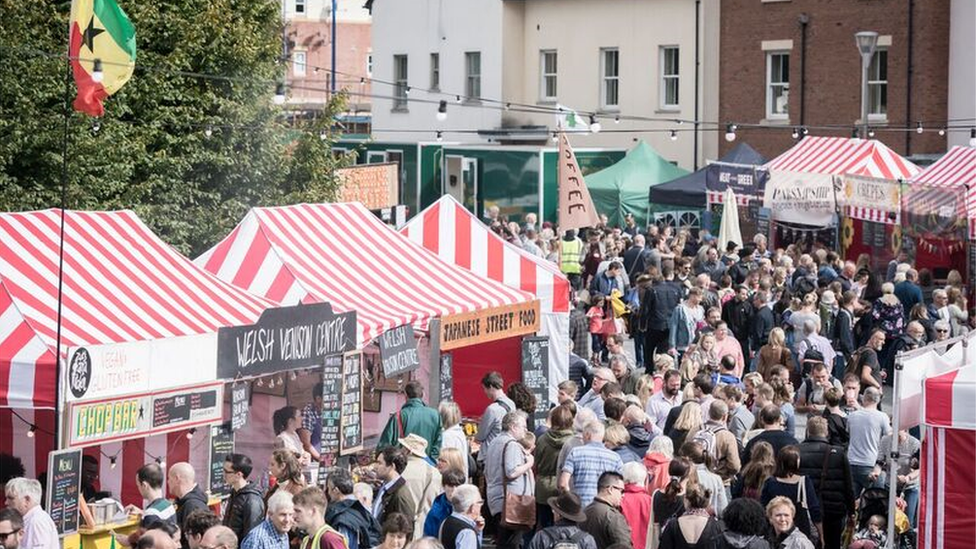Covid: 'Wasn't our call' to cancel Stereophonics Cardiff gigs
- Published
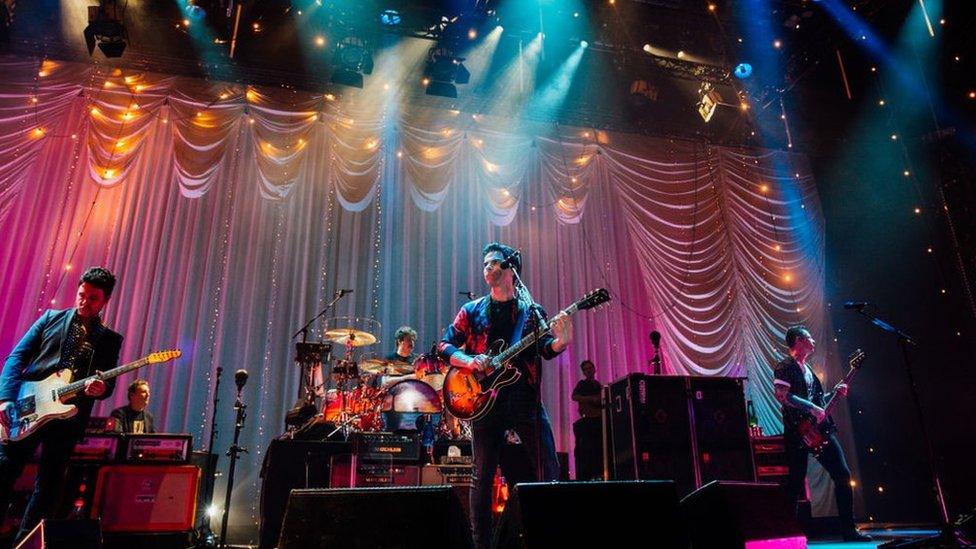
Stereophonics have had seven UK number one albums and one UK number one single
"It wasn't our call" for Stereophonics to cancel their two gigs as coronavirus started to take hold in the UK, a sound engineer at the concerts has said.
The Welsh band were criticised after playing two nights in Cardiff on the same March weekend as Wales' rugby game with Scotland was postponed.
But Stereophonics' sound engineer Dave Roden said calling off a concert was "usually" a call for the authorities.
The Welsh Government said public health advice at the time allowed such events.
During the crisis, 5,000 nights of performances have been lost in Wales.
This includes music gigs, comedy shows and theatre productions.
Stereophonics were criticised by TV presenter Piers Morgan, external and a local intensive care consultant, external for playing their double-header at Cardiff's Motorpoint Arena on 14 and 15 March as part of their Kind tour.
But Wales' final Six Nations game with Scotland was called off in the Welsh capital and other sports fixtures postponed as the pandemic started to take hold.
Wales, though, did not go into lockdown until the following week and on the weekend the Stereophonics played Cardiff, Public Health Wales had reported 60 Covid-19 cases in total and no deaths.
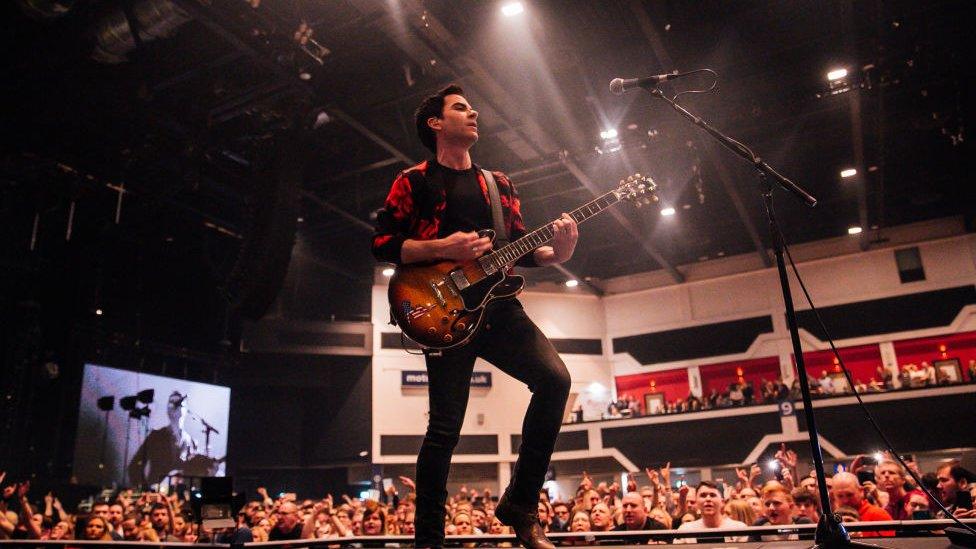
The Cardiff gigs were "home" shows for Stereophonics, who are from Cwmaman, Rhondda Cynon Taf
"I remember doing the last Stereophonics show in Cardiff arena and there was a bit of a hubbub going on as to whether we should have been doing the show," Mr Roden, a sound engineer of more than 20 years, told BBC Radio Wales.
"But when you're in the bubble, you're just concentrating on the work.
"We've had questions before with snow as to whether a show should go ahead.
"In the end, it's not our call. That's up to usually the police or the local authority or something - it's out of our control. We just do what we do.
Allow X content?
This article contains content provided by X. We ask for your permission before anything is loaded, as they may be using cookies and other technologies. You may want to read X’s cookie policy, external and privacy policy, external before accepting. To view this content choose ‘accept and continue’.

"And when we heard that this was the last show that was happening possibly in the country at that time, I honestly was like everybody else and thought a fortnight or a month and it will all blow over.
"But as the time went on in that following week it became apparent that things were not just going to blow over.
"Within a week it became very apparent that all of the shows had either been cancelled or rescheduled."

Dave Roden has worked with Stereophonics for more than 20 years

The Welsh Government said that at the time the "clear public health advice was that cancelling mass gatherings was not required.
"As soon as the expert advice changed we acted upon it," said a spokesperson.
Since then major concerts like Lionel Richie at Cardiff Castle, Stereophonics in Bangor and Catfish and the Bottlemen in Swansea have been called off.
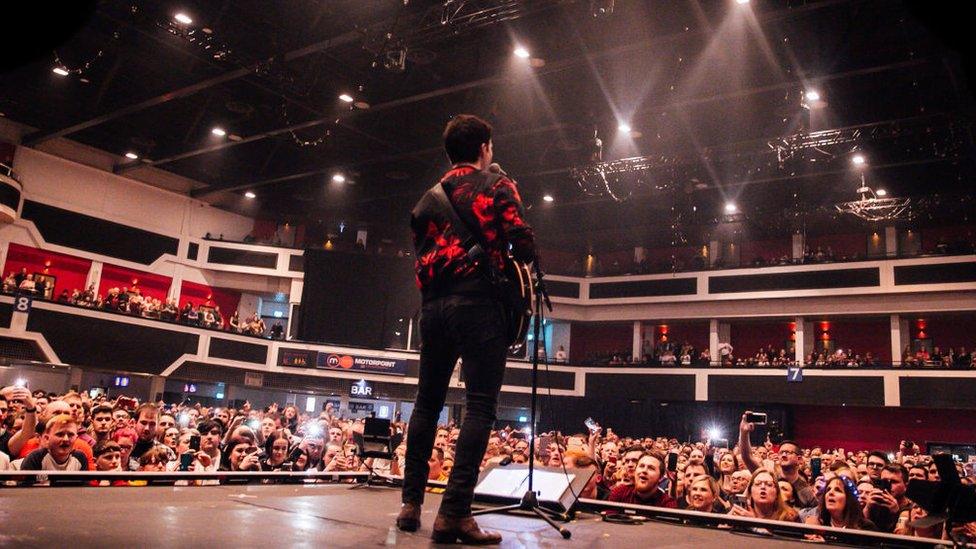
Stereophonics' two March gigs in Cardiff were on the same weekend as a Wales rugby match that was postponed
The Stereophonics gig in Cardiff was the last major music event to have taken place in Wales.
More than 3,000 people have died with coronavirus since Wales' first reported Covid death in mid-March.
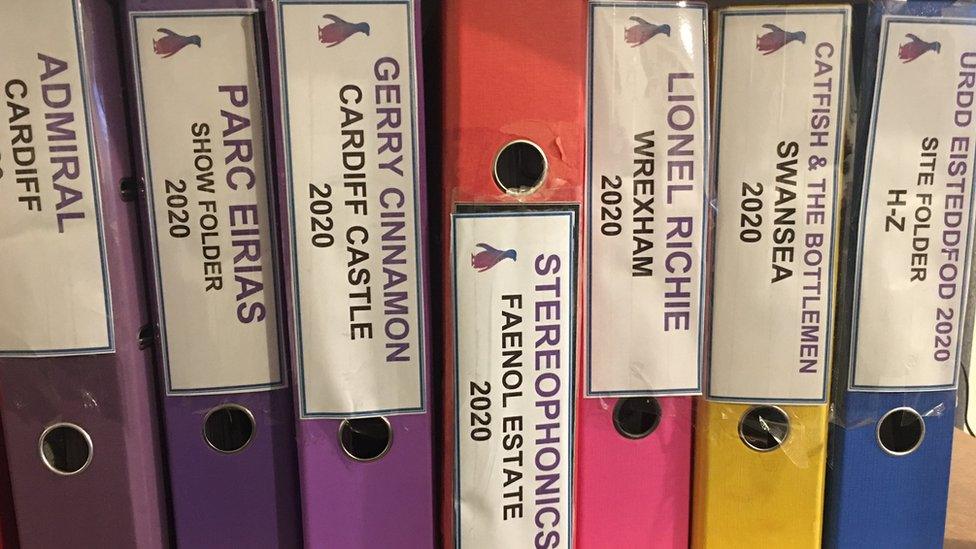
Thousands of people were due to attend Wales' biggest events this year
Festivals like Green Man and Blue Lagoon have been cancelled while venues like Cardiff's Motorpoint Arena have called off about 150 events, according to Welsh campaign group We Make Events.
"You're going to be in the region of somewhere like 4,000 to 5,000 nights of performance have been cancelled in Wales, if not more, since the start of the pandemic," said Sarah Cole from the group.
An estimated 58,000 people are employed in Wales' creative sector with 20,000 of them freelancers - with many "relying" on live music for an income.
Wales' events industry has been closed since March and Ms Cole says it is "potentially" shut until at least March 2021.
"It's a huge amount of income lost, of employment lost, it's a huge amount of confidence in the sector lost," she added.
"Having the confidence to keep going, to keep pushing, to keep finding a way to still be here when we can open up, is very draining and very exhausting."
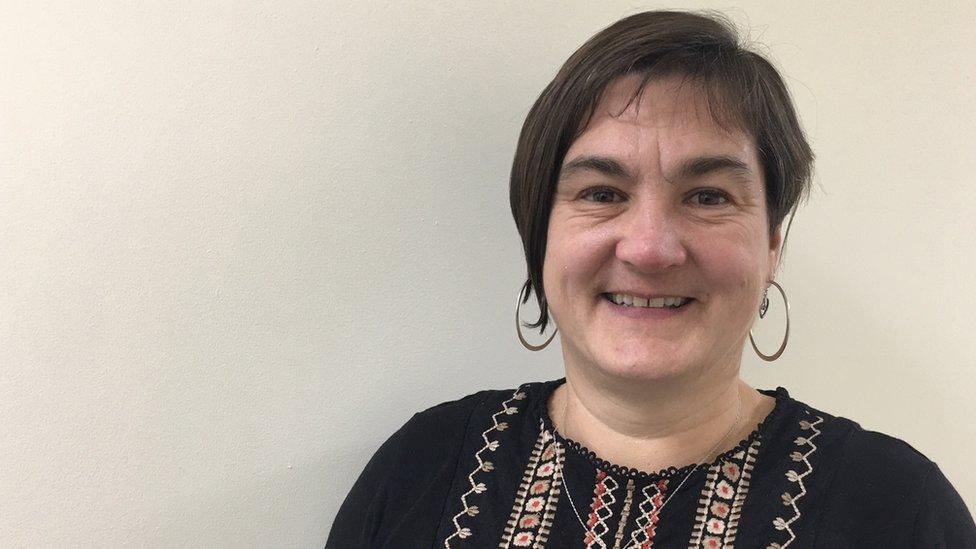
Sarah Cole warns Wales could lose almost 10,000 nights of music before the sector recovers from Covid
In July, the Welsh Government announced a £53m fund to support individuals and organisations in the arts sector.
Mr Roden was one of the freelancers who received the £2,500 maximum help but he said it "really doesn't make any dent in the bills does it?"
"There is effectively, for people like me, no income at the moment and no sign of any income for the foreseeable future," he added.
For more on this story, listen to Eye On Wales on BBC Radio Wales at 18:30 GMT on Wednesday or on BBC Sounds.
- Published17 November 2020
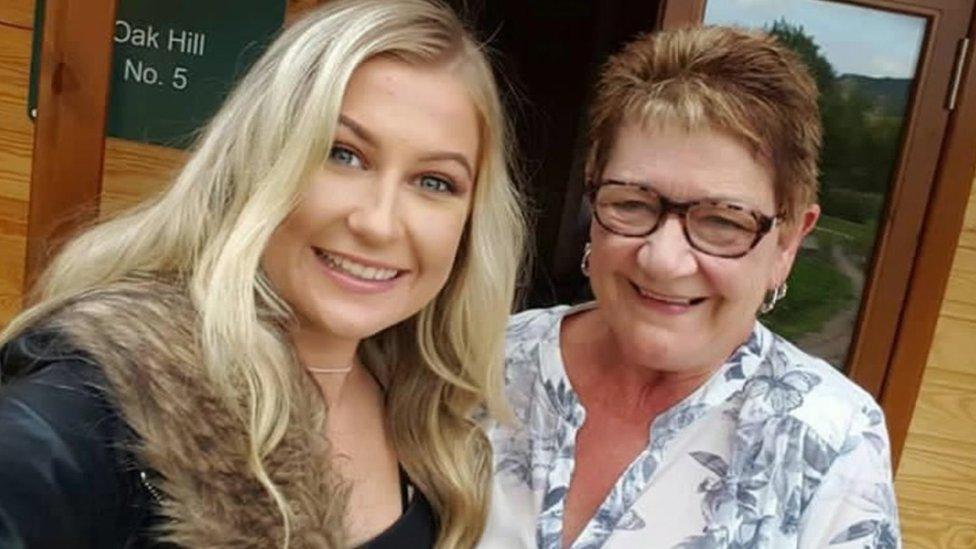
- Published26 November 2020
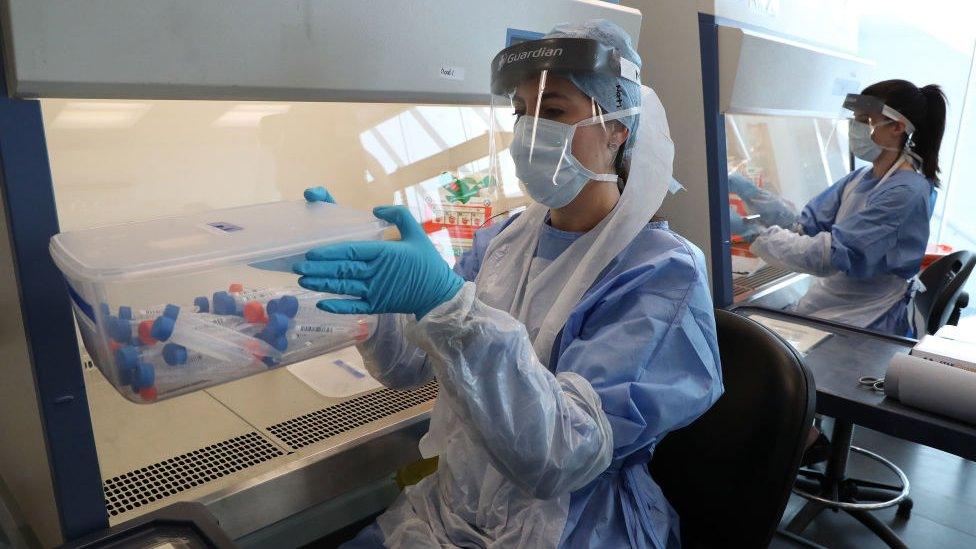
- Published30 July 2020
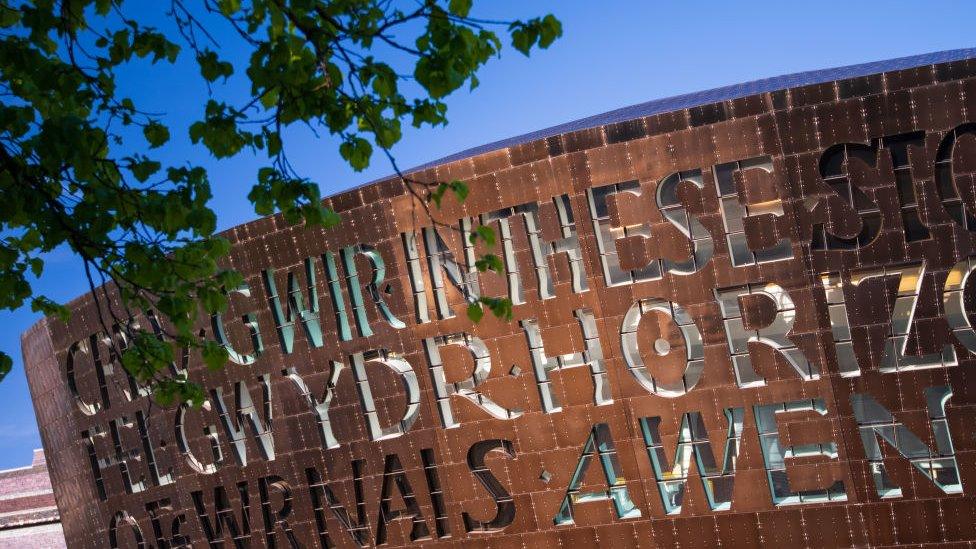
- Published6 March 2020
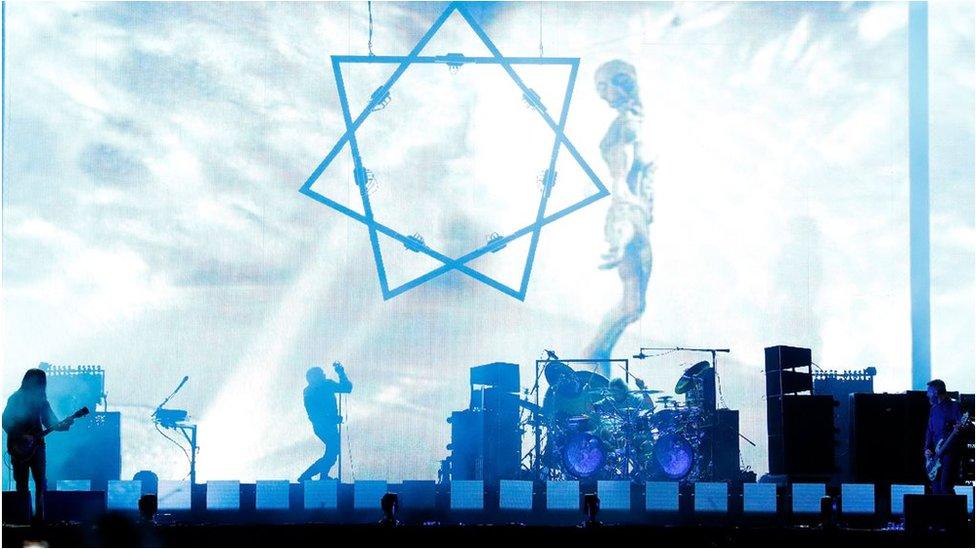
- Published13 March 2020
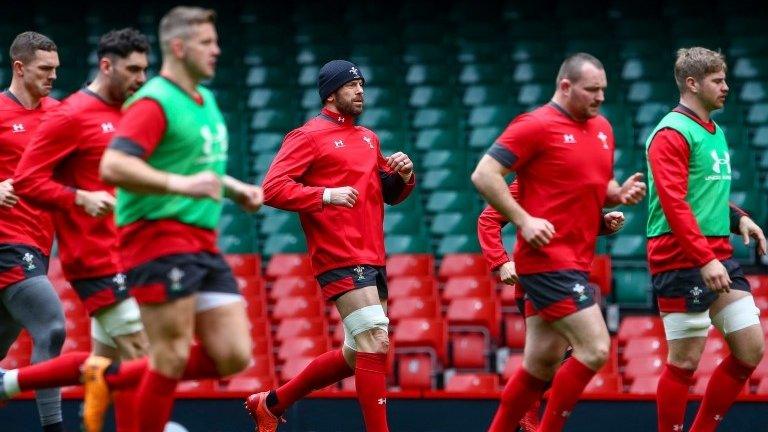
- Published22 July 2020
